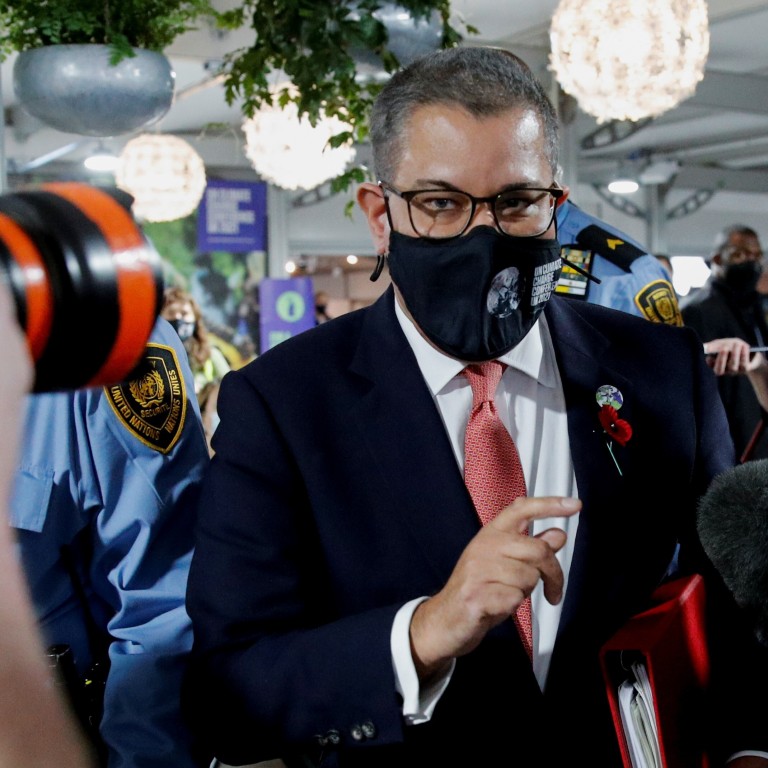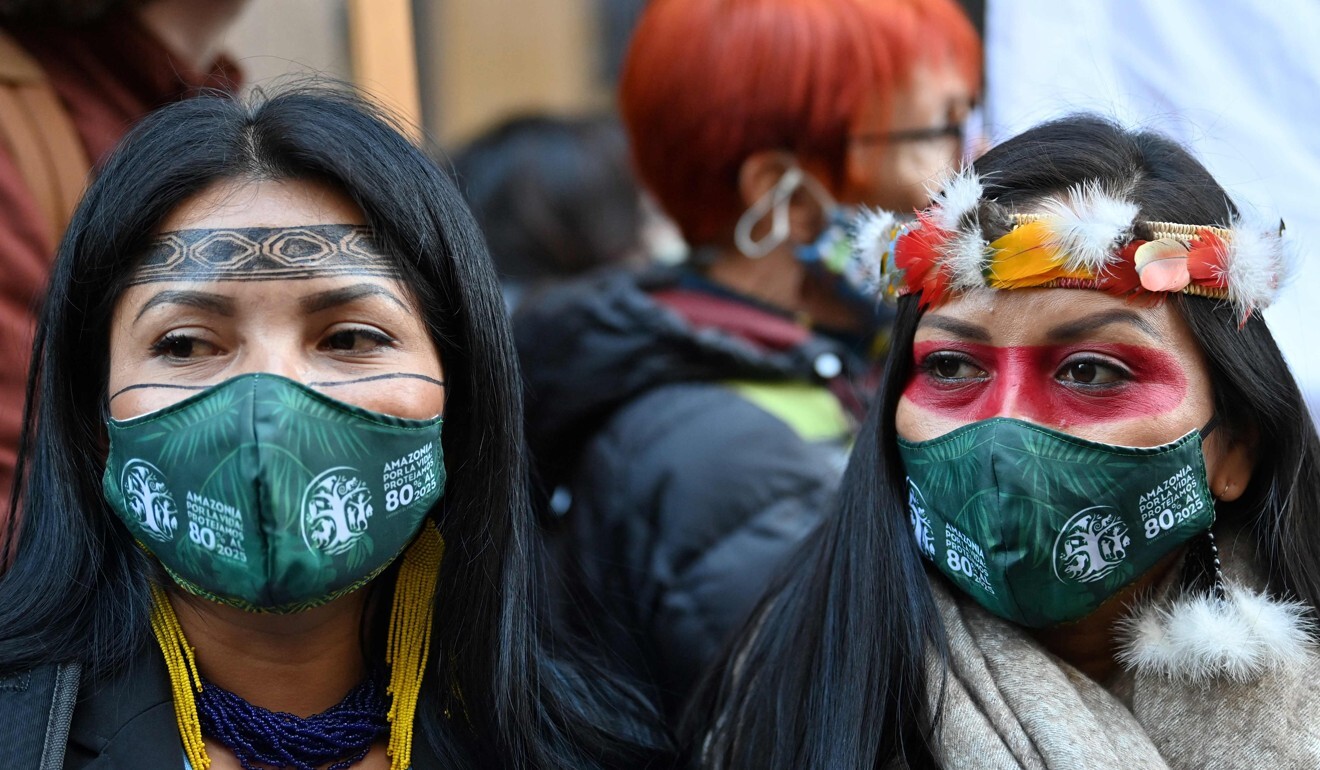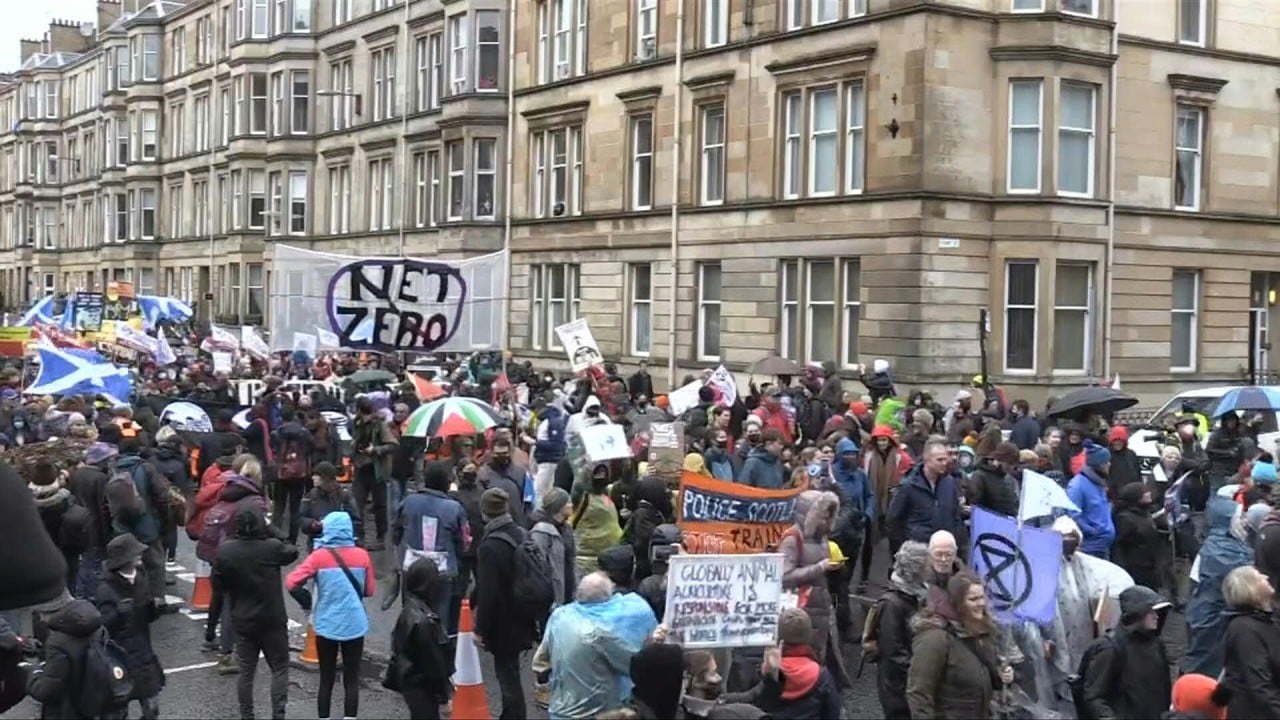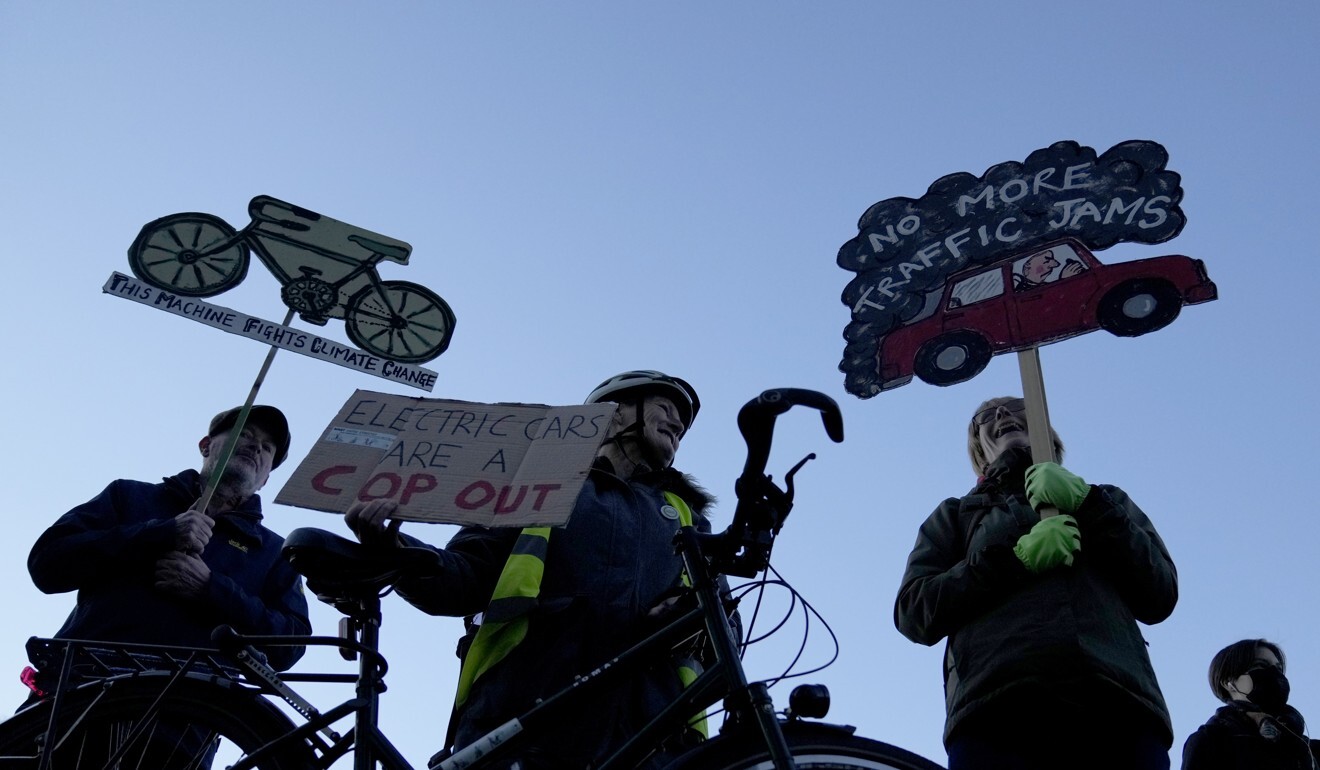
COP26 climate talks chair urges speed and ‘compromise’; ‘what we agree sets future for our children and grandchildren’
- Alok Sharma says negotiators must ‘roll up sleeves’, get to work and find middle ground before talks conclude on Friday
- Around 200 nations need to agree on how to tackle communal problem of global warming, then sign a final text
The President of the COP26 UN climate talks in Glasgow says time to resolve key differences is running out.
Alok Sharma told negotiators on Wednesday that he still intends to conclude the two-week talks on Friday, November 12.
“My big, big ask of all of you is to please come armed with the currency of compromise,” he said. “What we agree in Glasgow will set the future for our children and grandchildren.”
“I request us all collectively to please roll up our sleeves and get to work,” he added.
The EU’s climate chief, Frans Timmermans, echoed the sense of urgency. “Consider my sleeves rolled,” he told Sharma. He said “major emitters have a major responsibility.”
“The $100 billion target has not been met,” Joaquim Leite said in a speech at the summit. “And this amount is no longer enough for the world to build a new green economy with a responsible transition.”

Saudi Arabia’s energy minister denied allegations that his country’s negotiators were working to slow down negotiations and water down commitments at the climate talks.
It is a “a false allegation, a cheat and a lie,” said Prince Abdulaziz bin Salman al Saud.
Earlier Wednesday, the British hosts of the summit proposed that countries raise their ambitions to slash greenhouse gas emissions by the end of 2022 in a draft political decision that nations will negotiate over the next few days.
China’s carbon emissions set to pass pre-pandemic levels
It highlights “alarm and concern” about global warming the planet is already experiencing and continues to call on the world to cut about half of its emissions of heat-trapping gases by 2030.
The proposal underscores the concerns of climate experts and activists that there is a yawning gap between current national pledges and the kinds of cuts required to keep the world from tilting into a full-blown climate crisis.

02:18
Climate protesters around the globe demand more action as COP26 talks enter second week
The first draft of the COP26 political decision asks countries to “revisit and strengthen the 2030 targets in their nationally determined contributions, as necessary to align with the Paris Agreement temperature goal by the end of 2022”.
Under the 2015 Paris Agreement, countries agreed to limit global warming to well below 2.0 degrees Celsius above pre-industrial levels and try to cap it at 1.5C above pre-industrial levels.
Beyond this threshold, scientists say the sea level rises and increasing floods, droughts, wildfires and storms already being experienced will become catastrophic and potentially irreversible.
At COP26, China doesn’t want solutions held up by target negotiation
The draft also urged countries to phase out coal, oil and gas subsidies, taking direct aim at the burning of coal, oil and gas that produces carbon dioxide, the primary contributor to man-made climate change. It did not set a fixed date for phasing them out.

Environmental group Greenpeace slammed the draft as inadequate. “This draft deal is not a plan to solve the climate crisis, it’s an agreement that we’ll all cross our fingers and hope for the best. It’s a polite request that countries maybe, possibly, do more next year.”
Not falling, but rising
The Climate Action Tracker (CAT) research group said on November 9 that all national pledges submitted so far to cut greenhouse gases by 2030 would allow the Earth’s temperature to rise 2.4C from pre-industrial levels by 2100.
The draft document reminds countries that to stop the planet heating beyond the critical 1.5C threshold, global CO2 emissions must drop 45% by 2030 from 2010 levels.
Under the national climate pledges submitted to the UN so far, emissions will be 14% above 2010 levels by 2030.
The draft acknowledges “with regret” that rich nations have failed to live up to their pledge of providing US$100 billion a year in financial help by 2020 to help poor nations dead with global warming.
Why China won’t commit to COP26 pledge to slash methane emissions
The document asks countries to submit improved pledges next year, but does not confirm if this will become an annual requirement. Some states have said annual reviews would be too frequent and too taxing for countries with limited government resources.
The draft’s call to halt subsidies for fossil fuels is also likely to face resistance from big producers. Alongside the need to cut emissions faster, a core aim of COP26 is to increase the provision of climate finance – money given by rich countries, whose greenhouse gas emissions are largely responsible for climate change – to poorer countries to help them cope with increasingly disastrous climate impacts and cut their own emissions.
The draft “urges” developed countries to “urgently scale up” this support, and says more of it needs to take the form of grants, rather than loans that burden poor nations with more debt.
It does not set out specific new targets for climate finance or a new plan to ensure the money arrives.
Additional reporting by AP

